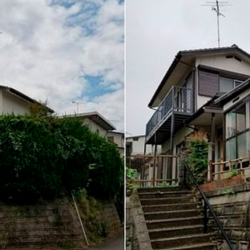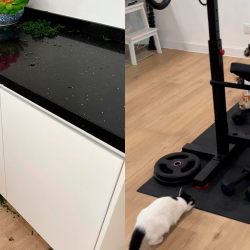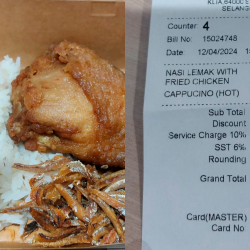INSTANT VIEW-AstraZeneca says its coronavirus vaccine can be around 90% effective
(Adds Chinese company's reaction)
Nov 23 (Reuters) - AstraZeneca said on Monday its vaccine for the novel coronavirus could be around 90% effective without any serious side effects, giving the world another important tool to halt the COVID-19 pandemic.
Phase III trial results of the vaccine developed by Oxford University found it was 90% effective if administered at a half dose and then at a full dose, or 62% effective if administered in two full doses.
But scientists cautioned against seeing this as evidence that it would be less useful than rival vaccines from Pfizer and Moderna, which each prevented about 95% of cases according to data this month.
Here are some reactions to the news:
BRITISH PRIME MINISTER BORIS JOHNSON
"Incredibly exciting news the Oxford vaccine has proved so effective in trials," Johnson said on Twitter. "There are still further safety checks ahead, but these are fantastic results."
BRITISH HEALTH SECRETARY MATT HANCOCK
"We hope to be able to start vaccinating next month," Hancock told BBC TV.
"The bulk of the vaccine rollout programme will be in January, February, March. And we hope that sometime after Easter things will be able to start to get back to normal."
He earlier told Sky News: "We've got 100 million doses on order and should all that go well, the bulk of the rollout will be in the new year."
Hancock also said there was evidence in the report that the vaccine could reduce transmission of the disease.
"Now of course that would be very good news if confirmed, because obviously what we want to do is not only stop people from getting the disease but also stop its transmission," he said.
PROFESSOR ANDREW POLLARD, DIRECTOR OF THE OXFORD VACCINE GROUP AND CHIEF INVESTIGATOR OF THE OXFORD VACCINE TRIAL
"That 90% is an intriguing result. So when we give a half dose as the first dose (it) means that we've got more vaccine available. And then... after the second dose we see 90% protection," Pollard told BBC TV.
He said earlier: "We also have a vaccine that is going to be easy to distribute if stored at fridge temperatures, and we can get it to every corner in the world. It's already been manufactured in 10 different sites around the world to make sure that that can happen."
HARGREAVES ANALYST SUSANNAH STREETER
"There was little...enthusiasm for AstraZeneca this morning, as the efficacy rates for its vaccine fell short of rivals," Hargreaves analyst Susannah Streeter said as the company's shares fell as much as 2% in early trade.
PETER LIESE, EU LAWMAKER WITH THE EUROPEAN PEOPLE'S PARTY
"The efficacy seems to be lower than with BioNtech/Pfizer and Moderna but the vaccine still has advantages. AstraZeneca uses a well-known technology, namely a so-called vector vaccine.
"Although I have great confidence in the projects of BioNTech/Pfizer and Moderna, it is nevertheless good that we also have a vaccine candidate that uses a different technique. It may be that the AstraZeneca vaccine is more suitable for certain groups of people and it would certainly be an alternative for people who do not accept the novel m-RNA vaccines. Another advantage is that the vaccine is significantly cheaper than BioNTech/Pfizer and Moderna."
JEAN-DANIEL LELIEVRE, HEAD OF CLINIC IMMUNOLOGY AND INFECTIOUS DISEASES AT CRETEIL HENRI-MONDOR HOSPITAL, FRANCE
"We are only seeing partial results here and we would need to know the exact number of subjects for each regimen. The trial also had to be stopped and AstraZeneca makes no mention of the incident in today's release.
"Given that we are looking at a vaccine using a viral vector, we could potentially see an interference taking place with antibodies reacting to the vector and not to the virus. There are lots of small points for which we need more granular information to understand how this vaccine differs, in terms of efficacy, from the Pfizer/BioNTech and Moderna vaccines."
ZHU TAO, CHIEF SCIENTIFIC OFFICER AT CHINA'S CANSINO BILOLOGICS INC, WHICH IS DEVELOPING A VACCINE USING A TECHNIQUE SIMILAR TO ASTRAZENECA
"The AstraZeneca/Oxford vaccine results showed that with proper design, the adenovirus-vectored vaccine can also achieve 90% protection. The storage and transportation temperature of 2-8 degrees Centigrade would greatly improve the vaccine accessibility."
PASCAL SORIOT, CHIEF EXECUTIVE OFFICER, ASTRAZENECA
"The vaccine's simple supply chain and our no-profit pledge and commitment to broad, equitable and timely access means it will be affordable and globally available supplying hundreds of millions of doses on approval."
PAM CHENG, OPERATIONS EXECUTIVE, ASTRAZENECA
AstraZeneca will have 200 million doses of its candidate vaccine by the end of 2020, with 700 million doses ready globally by the end of the first quarter of 2021, operations executive Pam Cheng said.
Cheng told a briefing that there would be 20 million doses in Britain by the end of the year, with 70 million doses for the UK by the end of Q1 2021.
PETER HORBY, PROFESSOR OF EMERGING INFECTIOUS DISEASES AND GLOBAL HEALTH, UNIVERSITY OF OXFORD:
"The reported efficacy of 70% is an interim measure and as more data accrue we will get a better idea of the protection it affords. Importantly, from what we have heard the vaccine seems to prevent infection not just disease. This is important as the vaccine could reduce the spread of the virus as well as protect the vulnerable from severe disease.
The Oxford vaccine can be stored in the fridge, as opposed to the freezer like the other two vaccines, which means it is a more practical solution for use worldwide."
MICHAEL HEAD, SENIOR RESEARCH FELLOW IN GLOBAL HEALTH, UNIVERSITY OF SOUTHAMPTON
"These results are intriguing, with two different estimates of efficacy depending upon the dose used with the vaccine.
"These are provisional results that have not been peer-reviewed and the study is ongoing, so as with the other recent announcements from Pfizer and Moderna, we should be a little cautious about these findings. It's not yet fully clear why a half dose and then a full dose was potentially more protective but if the final results continue to show this pattern of around 90% effectiveness, this would allow greater vaccine supply not just in the UK but also globally."
DANNY ALTMANN, PROFESSOR OF IMMUNOLOGY, IMPERIAL COLLEGE, LONDON
"I think it is a real fool's errand to start trying to pick these three (Pfizer/Moderna/Astra) apart on the basis of snippets of phase 3 data from press releases. For the bigger picture, my suspicion is that by the time we are a year down the line, we'll be using all three vaccines with about 90% protection - and we'll be a lot happier." (Reporting by Guy Faulconbridge, Michael Holden, Kate Kelland, Sarah Young, Kate Holton, Matthias Blamont and Roxanne Liu; Editing by Raju Gopalakrishnan)






